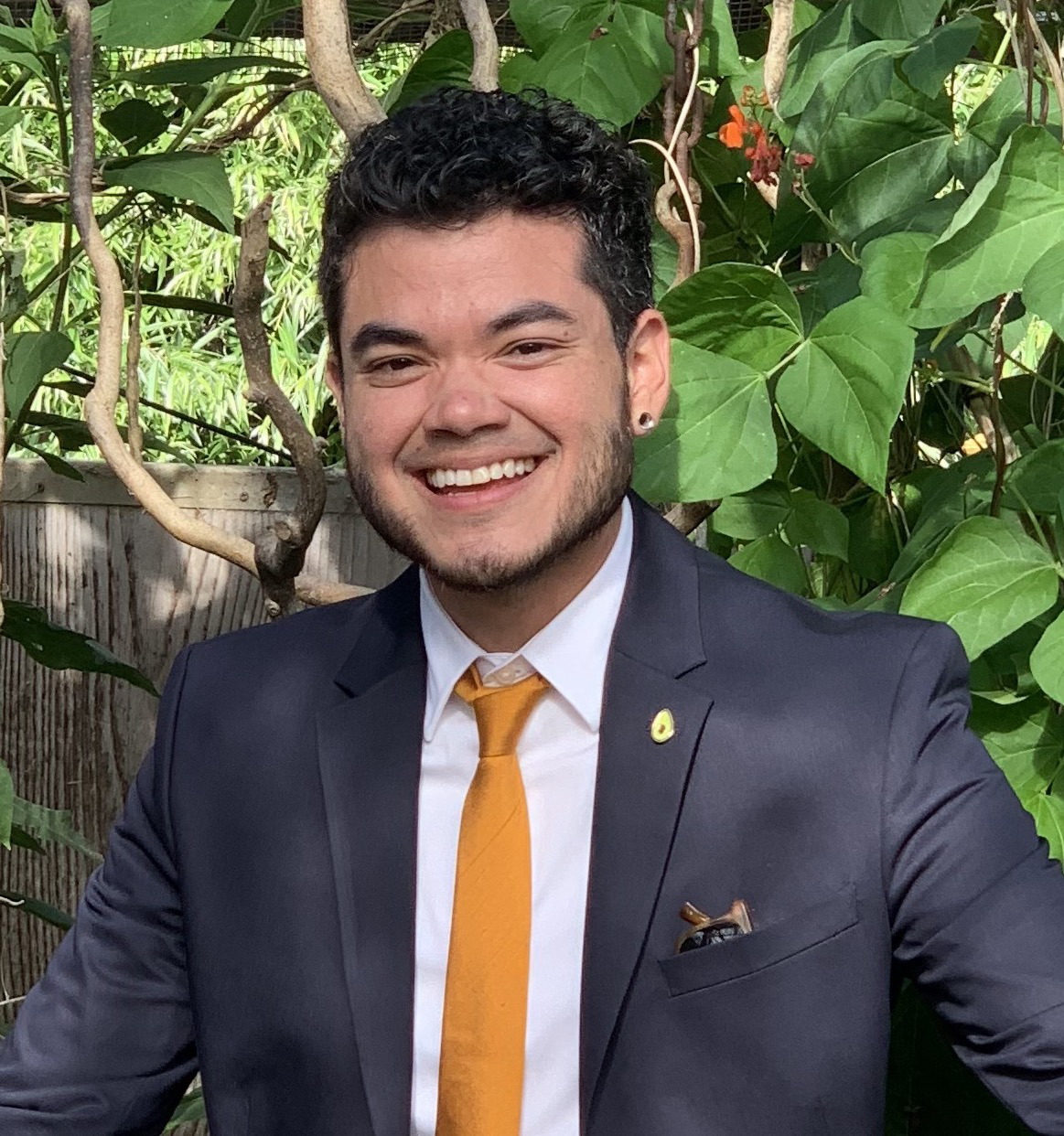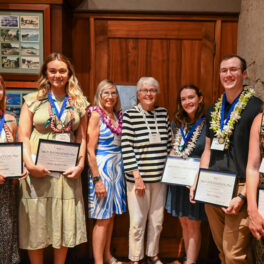Marine biology student receives nation’s premier conservation fellowship
 Shayle Matsuda
Shayle MatsudaShayle Matsuda, a doctoral candidate in the Marine Biology Graduate Program, was recently announced as a recipient of the 2021 David H. Smith Conservation Research Fellowship awarded by the Society for Conservation Biology and the Cedar Tree Foundation.
The Smith Fellowship, one of the nation’s premier postdoctoral programs in conservation science, identifies and supports early-career scientists who will shape the growth of applied conservation science and seeks to find solutions to the most pressing conservation challenges.
As global climate changes, a wide variety of organisms and ecosystems are being impacted—in large and microscopic ways. Among the conservation approaches being explored for coral reefs is translocation, wherein coral fragments are used to repopulate a reef that has been negatively impacted.
Matsuda will be part of a team of researchers engaging in an international coral reef restoration project. During the fellowship, he will assess how transplanting coral affects their health, specifically the symbiotic relationship between coral and their microbiomes.
“By studying patterns of microbial dysbiosis, the breakdown of the microbiome-host relationship, in multiple key coral species in both Hawai‘i and Florida, we will better understand the risks of implementing large-scale coral translocation as a conservation strategy,” said Matsuda.
Working with Craig Nelson, an associate researcher at the Center for Microbial Oceanography: Research and Education, and the Gates Coral Lab at the Hawaiʻi Institute of Marine Biology, Matsuda has focused his graduate research on the effects of ocean warming on coral-microbial symbioses and coral physiology. With fellowships from Hawaiʻi Sea Grant, Point Foundation, and Denise B. Evans, plus direct support from Pam Omidyar and the Paul G. Allen Family Foundation, he has studied coral bleaching and recovery in Hawaiʻi and on the Great Barrier Reef in Australia, examining how thermal stress impacts microbial and algal symbioses.
“Shayle’s doctoral work here at UH Mānoa has broken new ground in understanding how rising ocean temperatures will affect the symbioses between coral, algae and bacteria as coral reef bleaching increases worldwide,” said Nelson. “He has pioneered new molecular techniques to study these symbioses throughout the coral lifecycle. Shayle will bring cutting-edge skills in coral microbiome science and the molecular basis of symbiosis to his Smith fellowship project.”
Having grown up on Lake Michigan, Matsuda’s one connection to the marine world was peering through the tanks at Chicago’s Shedd Aquarium, sparking a passion that continues today.
“Corals are incredibly fascinating organisms and are the bedrock of most tropical reef ecosystems, and while corals themselves initially drew me in, it is the increasing frequency and severity of global coral bleaching events, the devastation to reef ecosystems and the communities who rely on them that has led to my dedication to coral reef conservation,” said Matsuda.
Matsuda’s research will be conducted with academic mentor Andrew Baker at the University of Miami and in partnership with Ross Cunning at the Shedd Aquarium. Additional mentor team members include Rebecca Albright, California Academy of Sciences; Crawford Drury, UH Mānoa HIMB; and Jennifer Koss, National Oceanic & Atmospheric Administration, Coral Reef Conservation Program.
“Through collaborations with my mentorship team of academics and conservation practitioners and their partners, I will be able to answer questions at a much larger scale, combining research in Hawai‘i, Florida, the Bahamas, and at the Shedd Aquarium’s state-of-the-art aquaria facilities,” said Matsuda. “This fellowship will support my research and expand my professional network in a way that will allow me to conduct meaningful science with immediate implications for reef conservation and management.”




